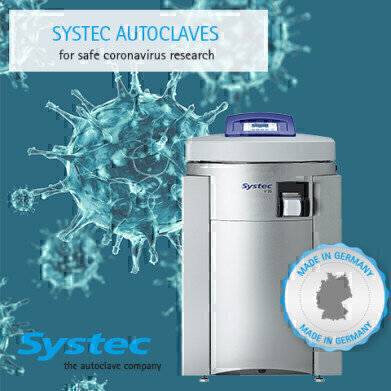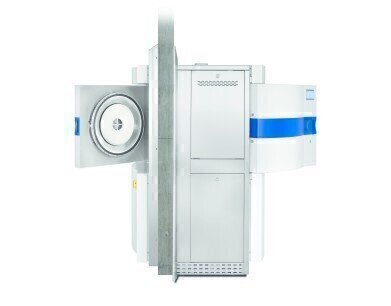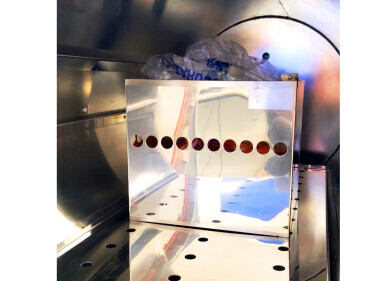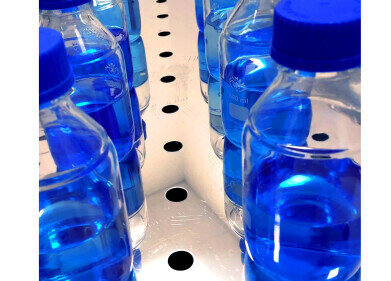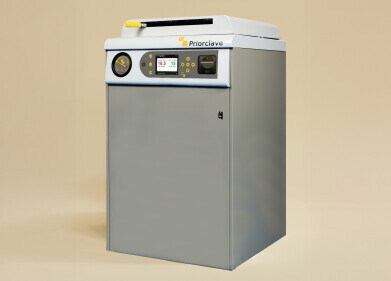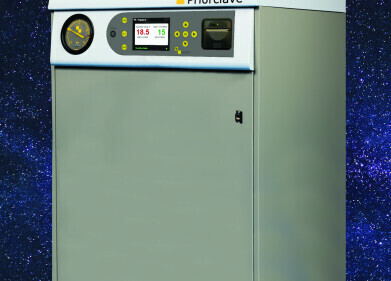Autoclaves
Safe COVID-19 Research with Systec Autoclaves
Jun 10 2020
National and international authorities are currently managing efforts to contain the Coronavirus that involve deliberately interrupting infection chains. At the same time, the virus is being examined at laboratories worldwide and bred for research purposes in order to understand how it works. This enables the development of drugs and vaccines against the Corona virus in the long term. According to the WHO guideline Systec laboratory autoclaves are ideal for sterilisation of contaminated waste, instruments, culture media or laboratory equipment to prevent the accidental spread of the coronavirus. This is primarily thanks to three key properties that the WHO stipulates as mandatory or recommends for BSL-2 and BSL-3-compliant sterilisation equipment. Systec is offering safe and validatable sterilisation solutions with accurate documentation.
Vacuum system
Systec autoclaves have a vacuum system that removes the air from the sterilisation chamber of the device in several vacuum pulses before the actual autoclaving process. The cold air can thus be removed from solids (e.g. pipette tips, glassware) and porous materials (e.g. textiles, filters) to guarantee the sterilising effect of the saturated steam subsequently injected. Thus, for example, Systec autoclaves keep coronavirus pathogens in cold-air enclosures from surviving the heating process.
Exhaust air filtration
A possible danger with autoclaving is the potential of certain pathogens to escape through the exhaust air during the sterilisation process before the temperatures required for inactivation have been reached. When working in connection with the corona virus, you can easily prevent this effect by using Systec autoclaves in combination with the feature of exhaust air filtration. Exhaust air filtration uses sterile air filters with a heat-resistant PTFE membrane, which reliably retains microorganisms with a pore size of 0.2 μm. As a result, all escaping gases are passed through the above-mentioned sterile air filter in the heating and sterilisation phase. This and the additional condensate activation ensure that no non-sterile or contaminated material can escape from the sterilisation chamber.
Accurate documentation
To contain the novel coronavirus, it is paramount to understand its pathways. Systec steam sterilisers guarantee this by digitally documenting all sterilisation processes. Among other things, the system records the sterilisation temperatures and periods so that any application errors can be traced by laboratory employees. If there is a coronavirus contamination due to faulty work processes, it can be determined exactly which sterilisation items are affected and when the faulty process occurred, allowing a resulting infection chain to be quickly identified and interrupted.
Many countries rely on Systec autoclaves (made in Germany)
The fact that Systec laboratory autoclaves are perfectly suitable for the sterilisation of laboratory waste, culture media and biological hazardous substances according to the WHO guidelines can already be seen from the fact that China and many other countries rely on Systec solutions to research and contain the coronavirus.
Systec helps contain the coronavirus
As the global market leader in the laboratory autoclave industry, we know all about reliable and validatable sterilisation solutions with corresponding documentation options. Systec autoclaves, in conjunction with adequate occupational safety processes, guarantee the conformity of BSL-2 and BSL-3 laboratories in accordance with the guidelines of the WHO.
Digital Edition
Lab Asia Dec 2025
December 2025
Chromatography Articles- Cutting-edge sample preparation tools help laboratories to stay ahead of the curveMass Spectrometry & Spectroscopy Articles- Unlocking the complexity of metabolomics: Pushi...
View all digital editions
Events
Jan 21 2026 Tokyo, Japan
Jan 28 2026 Tokyo, Japan
Jan 29 2026 New Delhi, India
Feb 07 2026 Boston, MA, USA
Asia Pharma Expo/Asia Lab Expo
Feb 12 2026 Dhaka, Bangladesh
